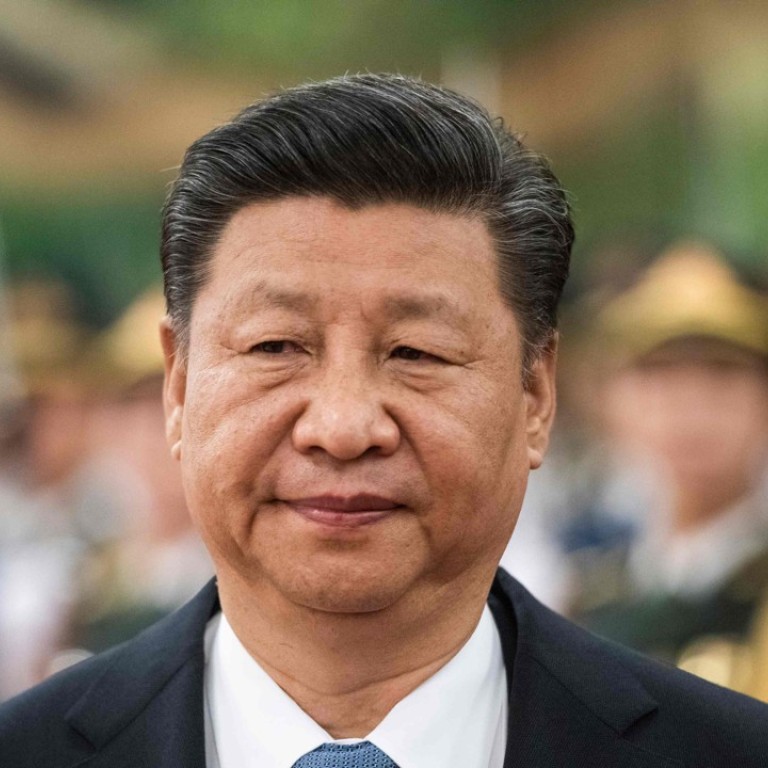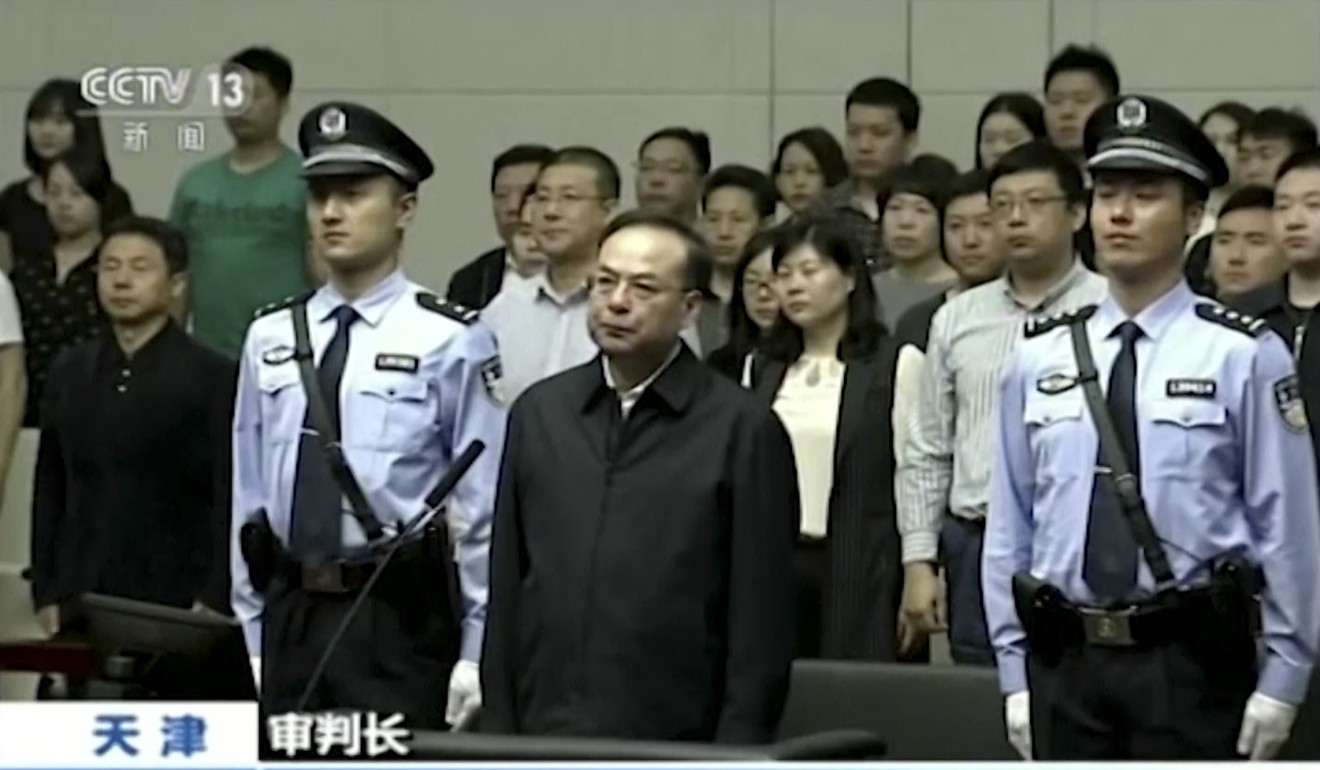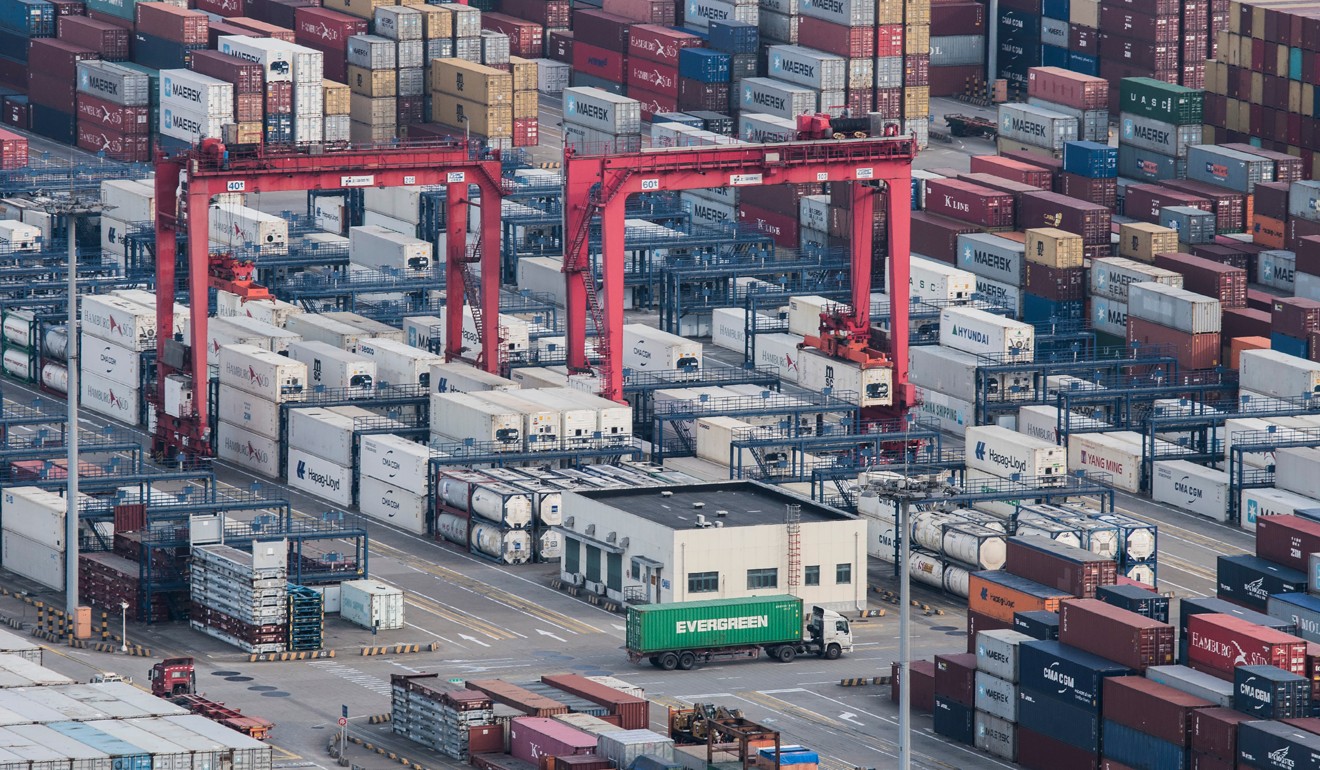
‘Crushing victory’: what’s next for Chinese President Xi Jinping’s war on corruption?
- The Communist Party says a milestone has been reached but assessments vary on just what it all means
China’s Communist Party has for the first time declared a “crushing victory” in President Xi Jinping’s war on corruption, a sudden announcement that left observers debating what it all meant for the six-year campaign.
In a statement after its meeting on Thursday, the party’s top 25-member decision-making body, the Politburo, said “the fight against corruption has achieved a crushing victory” since the 19th party congress late last year.
But it also warned that the situation ahead was still tough and the fight must go on.
The “crushing victory” reference is a marked change from Xi’s assessment two years ago when he told the Politburo that the war on corruption had gained “crushing momentum”. Ten months later, at the 19th party congress, he urged the party to keep up the momentum and strive for a “crushing victory”, a point reached just over a year into Xi’s second term in power.
More than 1.3 million party officials at various levels, from the powerful “tigers” to low-ranking “flies”, have been caught in the campaign since it was launched in late 2012.

The Politburo’s announcement, which seemed to catch some observers off guard, did not specify what criteria had been reached to warrant the assessment.
Zhuang Deshui, a specialist on clean governance at Peking University, said the “crushing victory” did not signal the end of the campaign.
“‘Crushing victory’ is still not the ‘ultimate triumph’. Personally I think it’s only about 60 per cent of the way there. There will be new terms describing new goals next,” he said.
State news agency Xinhua said the change from “crushing momentum” to “victory” meant the war on corruption had turned from “the accumulation of quantity” to “the transformation of quality”.
Shanghai’s jailed top prosecutor ‘implicates 100 other officials in corruption case’
Xinhua also described the creation in March of the National Supervisory Commission and its branches as a milestone. The new anti-graft body expands the scope of the crackdown from the party’s 90 million members to all public servants, including non-party members working for public schools and hospitals.
Hong Kong University associate professor Jiangnan Zhu, who researches corruption, said the statement was basically to signal an end of the “intensive campaign-style anti-corruption enforcement”.
“[The authorities] will depend more on institutional measures by the National Supervisory Commission for future anti-corruption [efforts] to maintain the result from previous intensive enforcement,” she said.
On Thursday at a Politburo “group study” session on reforms to the commission, Xi called for party discipline to be better integrated with law enforcement so as to further “institutionalise under the law and standardise” the anti-corruption drive.
Critics have labelled the commission “legal cover” for the party’s graft watchdog, allowing it to continue to detain suspects at secret locations without giving them access to lawyers – a practice widely condemned by legal specialists and rights advocates.
Despite the Politburo’s pledge that there will be no easing in the campaign, some observers said the change in wording suggested a shift in the party’s priorities.
In the same post-meeting statement, the Politburo also discussed the country’s economic outlook for next year at length, saying Beijing would try to develop “a powerful home market” to help offset external uncertainties.
And official data released on Friday suggested that fourth-quarter growth could slow further from the third quarter’s decade-low 6.5 per cent, amid the trade war with the United States.
Ding Xueliang, a political scientist with the Hong Kong University of Science and Technology, said
said China’s economic and financial troubles, amplified by the trade war, had become the top issue this year.
“The new wording is a very crucial distinction. In the past, fighting corruption was a top priority for the party. But it is no longer a top priority now,” Ding said.
“It doesn’t mean anti-corruption will be off the agenda, but economic and financial difficulties have become much more important.”

Others said the announcement was a way for Xi to showcase his political gains amid the economic turbulence.
“Given the many questions over the current state of affairs as a result of Xi’s governance, stressing the victory on his signature project might be a way to affirm his governing ability,” said Zhang Lifan, a Beijing-based political analyst.
Anti-corruption teams to be installed at China’s state banks and insurance companies, acting like ‘human surveillance cameras’
Xi’s anti-corruption campaign has already been featured as a landmark in an exhibition in Beijing for the 40th anniversary of the country’s reform and opening up.
Li Ling, who teaches Chinese politics and law at the University of Vienna, said the rush to claim victory might also be part of preparations for next year’s 70th anniversary of the people’s republic.
“Marking the anniversary with a victory in the party’s long-fought and hard-won battle against corruption will help to cement the association of good governance in the new era under Xi Jinping and the glory of the history of the people’s republic,” she said.
Li said the party had a long history of managing enforcement campaigns by setting targets, including late chairman Mao Zedong’s anti-corruption campaign in 1951-52.
“[Mao] had a firm idea of how many tigers, big and small, should be caught in different provinces and regions of the country. And when that target was hit, a victory could be claimed and the campaign could be wrapped up,” she said.
“Xi may also have a secret number that we do not know about. But in general, it is very difficult to measure the ‘victory’ of anti-corruption activities.”


